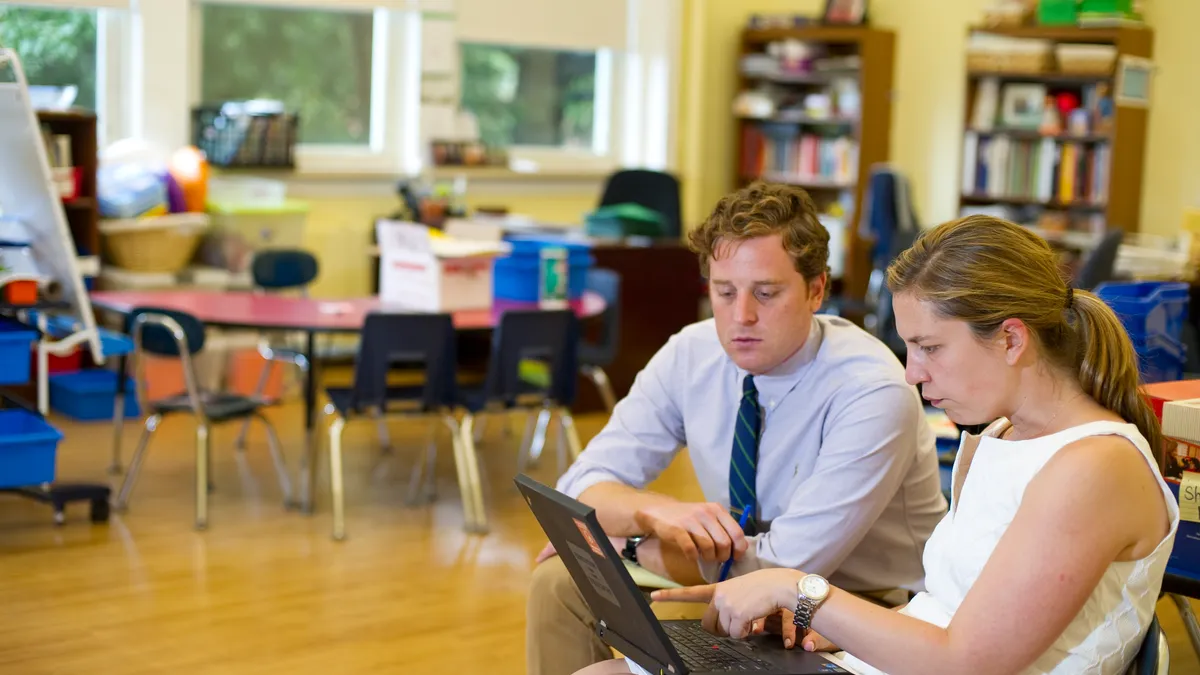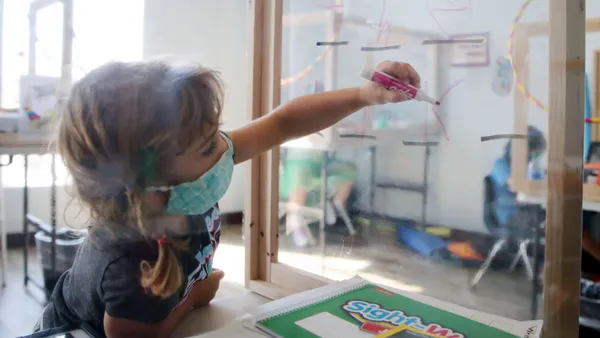Dive Brief:
-
Veteran teachers from California say distance learning creates more work, according to findings from the Inverness Institute's California Teacher Consultant Response Network project, published by EdSource. The 121 educators from across California included in the project as Inverness Institute "consultant members" reported teachers are working about eight hours a week more on average than when school was in-person.
-
According to the project, 59% of teachers feel the public misunderstands the requirements of their current workload, about 20% said they are spending additional time figuring out how to use new online learning platforms with "little to no" support from districts, and 55% said they felt “somewhat” supported.
-
Most teachers said they rely on other teachers for support in online learning, with 22% considering it “very useful” and 80% reporting they had helped other teachers a “considerable” amount or to a “great” extent.
Dive Insight:
Teacher comments in the Inverness Institute project reveal teachers experienced additional stress in the early days of distance learning. The nonprofit is focused on the study of teaching, teacher leadership and teacher networks to improve education.
A December report from the Colorado Department of Education and Colorado Education Initiative backs up the concerns presented in California, suggesting pressures from the novel coronavirus pandemic are fueling an impending decline in Colorado's teacher workforce. According to the results, 6% are planning on leaving the profession and 2% are taking a leave of absence. Because of this trend, 90% of districts responding said preventing burnout and turnover is a top priority.
Though it’s challenging to teach remotely, many educators also feel unsafe returning to in-person learning before being vaccinated. A September survey from the Education Week Research Center found only 36% of teachers feel safe returning to school before widespread vaccine distribution. Of those surveyed, 19% said they were considering quitting the profession due to pandemic-related concerns.
Another recent report from the Center for State and Local Government Excellence also found 63% of K-12 employees felt stressed, 54% felt burnt out and 47% felt anxious at work due to the pandemic. The findings also suggest teachers are significantly more stressed than other government employees, and that their primary concerns include preventing COVID-19 cases in their own families, acquiring coronavirus at work and having their benefits packages reduced. The report shows teachers’ job satisfaction significantly declined from 69% of respondents being very satisfied in March 2020 to only 44% feeling that way in October.














